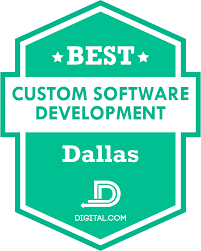The Role of Healthcare Software Development Companies in Revolutionizing the Industry
In recent years, the healthcare industry has witnessed a significant transformation driven by advancements in technology. Healthcare software development companies play a crucial role in this revolution by creating innovative solutions that improve patient care, streamline processes, and enhance efficiency.
Customized Solutions for Healthcare Providers
Healthcare software development companies specialize in designing and developing customized software applications tailored to the specific needs of healthcare providers. These solutions range from electronic health records (EHR) systems and practice management software to telemedicine platforms and patient engagement tools.
Ensuring Compliance and Security
One of the key priorities for healthcare software development companies is ensuring compliance with regulatory requirements such as HIPAA (Health Insurance Portability and Accountability Act) to protect patient data privacy and security. These companies implement robust security measures and encryption protocols to safeguard sensitive information.
Integration with Emerging Technologies
Healthcare software development companies are at the forefront of integrating emerging technologies such as artificial intelligence (AI), machine learning, and Internet of Things (IoT) into healthcare applications. These technologies enable predictive analytics, personalized medicine, remote monitoring, and automation of routine tasks.
Improving Patient Outcomes
By developing user-friendly interfaces and intuitive workflows, healthcare software solutions enhance communication between patients and providers, facilitate real-time data exchange, and empower patients to take an active role in their healthcare management. This leads to improved patient outcomes and higher levels of patient satisfaction.
Collaboration with Healthcare Stakeholders
Healthcare software development companies collaborate closely with healthcare providers, payers, regulatory bodies, and other stakeholders to understand industry challenges and develop solutions that address specific pain points. This collaborative approach ensures that software solutions meet the evolving needs of the healthcare ecosystem.
The Future of Healthcare Software Development
As technology continues to advance rapidly, healthcare software development companies will play an increasingly vital role in shaping the future of healthcare delivery. By leveraging innovative technologies and best practices, these companies will continue to drive efficiency, improve outcomes, and enhance the overall quality of care for patients worldwide.
9 Essential Tips for Success in Healthcare Software Development
- Understand healthcare industry regulations and compliance requirements.
- Prioritize data security and patient privacy in software development.
- Focus on user-friendly interfaces for healthcare professionals and patients.
- Implement robust testing procedures to ensure software reliability and accuracy.
- Stay updated with emerging technologies in healthcare IT for innovation.
- Collaborate with healthcare professionals to understand their needs and challenges.
- Provide training and support services for effective implementation of the software.
- Establish strong communication channels with clients for feedback and updates.
- Maintain documentation and version control for transparency and traceability.
Understand healthcare industry regulations and compliance requirements.
To succeed in the field of healthcare software development, it is crucial for companies to have a deep understanding of healthcare industry regulations and compliance requirements. Healthcare is a highly regulated sector with stringent guidelines to protect patient data privacy and ensure the quality and safety of care delivery. By staying informed about regulations such as HIPAA (Health Insurance Portability and Accountability Act) and other industry standards, software development companies can develop solutions that not only meet legal requirements but also instill trust among healthcare providers and patients. Compliance with these regulations is essential for building secure, reliable, and effective software products that contribute to the advancement of healthcare services.
Prioritize data security and patient privacy in software development.
It is crucial for healthcare software development companies to prioritize data security and patient privacy throughout the software development process. By implementing robust encryption methods, access controls, and compliance with regulations such as HIPAA, these companies can ensure that sensitive patient information is safeguarded against unauthorized access or breaches. Prioritizing data security not only protects patient privacy but also builds trust with healthcare providers and patients, ultimately contributing to the overall success and reliability of healthcare software solutions.
Focus on user-friendly interfaces for healthcare professionals and patients.
In the realm of healthcare software development companies, a crucial tip is to prioritize the creation of user-friendly interfaces for both healthcare professionals and patients. By focusing on intuitive design and seamless navigation, software solutions can enhance the user experience, promote efficient workflows, and ultimately improve patient care outcomes. Healthcare professionals can benefit from interfaces that streamline their tasks and provide easy access to critical information, while patients can engage more actively in their healthcare journey through user-friendly platforms that empower them to manage their health effectively. Prioritizing user-friendly interfaces not only enhances usability but also fosters greater satisfaction among users in the healthcare ecosystem.
Implement robust testing procedures to ensure software reliability and accuracy.
Implementing robust testing procedures is crucial for healthcare software development companies to ensure the reliability and accuracy of their products. Thorough testing helps identify and address potential issues early in the development process, reducing the risk of errors that could impact patient care. By conducting comprehensive testing, including functional, performance, and security testing, these companies can deliver high-quality software solutions that meet the stringent requirements of the healthcare industry and provide healthcare providers with reliable tools to improve patient outcomes.
Stay updated with emerging technologies in healthcare IT for innovation.
To stay ahead in the competitive landscape of healthcare software development, it is crucial for companies to continually stay updated with emerging technologies in healthcare IT. By keeping abreast of the latest advancements in areas such as artificial intelligence, machine learning, and telemedicine, companies can drive innovation and develop cutting-edge solutions that meet the evolving needs of the industry. Embracing new technologies not only enhances the quality of healthcare software products but also enables companies to deliver more efficient, secure, and patient-centric solutions that ultimately improve patient care outcomes.
Collaborate with healthcare professionals to understand their needs and challenges.
Collaborating with healthcare professionals to understand their needs and challenges is a crucial tip for healthcare software development companies. By actively engaging with doctors, nurses, administrators, and other healthcare stakeholders, software developers can gain valuable insights into the daily workflows, pain points, and requirements of the industry. This collaborative approach ensures that software solutions are tailored to address specific challenges faced by healthcare providers, leading to more effective and user-friendly applications that ultimately improve patient care and streamline operational processes.
Provide training and support services for effective implementation of the software.
To ensure the successful implementation of healthcare software solutions, it is crucial for healthcare software development companies to provide comprehensive training and support services. By offering training sessions tailored to the specific needs of users, healthcare professionals can effectively learn how to utilize the software to its full potential. Additionally, ongoing support services help address any issues or questions that may arise during the implementation process, ensuring a smooth transition and optimal utilization of the software within healthcare settings.
Establish strong communication channels with clients for feedback and updates.
Establishing strong communication channels with clients is crucial for healthcare software development companies to gather valuable feedback and provide timely updates on the progress of projects. By maintaining open lines of communication, companies can ensure that client expectations are met, address any concerns or suggestions promptly, and foster a collaborative relationship that leads to successful outcomes. Regular updates and feedback sessions help in building trust and transparency, ultimately resulting in the delivery of high-quality software solutions that meet the specific needs of healthcare providers.
Maintain documentation and version control for transparency and traceability.
To ensure transparency and traceability in healthcare software development, it is essential for companies to maintain thorough documentation and version control practices. By documenting every stage of the development process and keeping track of changes through version control systems, healthcare software development companies can provide clear insights into the evolution of their products. This approach not only enhances collaboration among team members but also enables stakeholders to understand the rationale behind decisions and track any modifications made to the software, ultimately ensuring accountability and compliance with regulatory standards.




